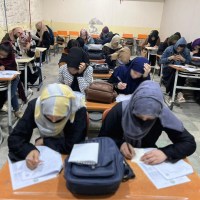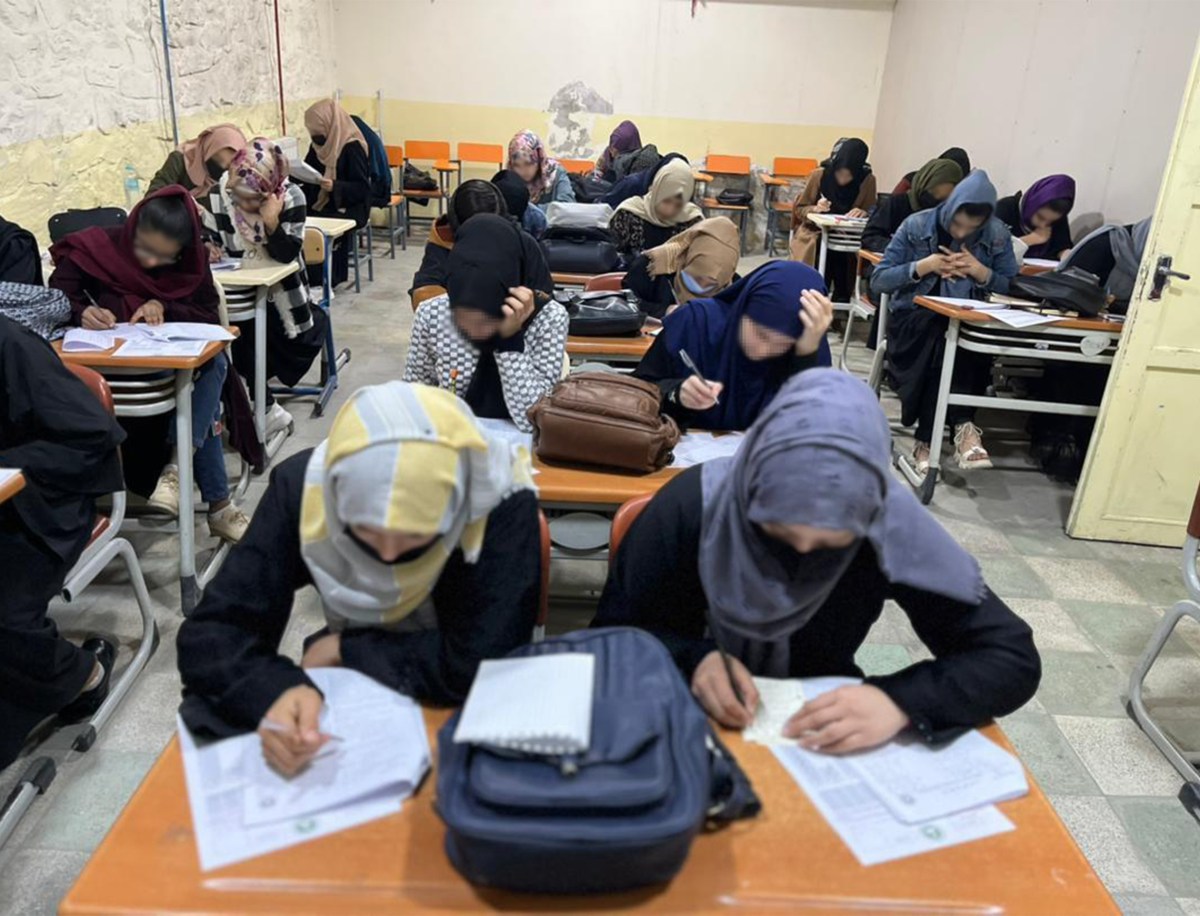You’ve worked hard for four years to earn your university degree. You’ve endured an empty belly, choosing to buy school supplies instead of a daily meal. You’ve faced fear-inducing, Taliban-led school inspections of your attire and conduct, just to continue learning. All week, you’ve put in extra hours in preparation for your final exam, the last barrier between you and your long-sought university diploma. As you approach the gate to your university on the day of your last exam, you’re told you cannot enter. You can never enter again. Go home. Live your life within a box of four walls.
That’s what happened to female students in the December graduating class of 2022 in Afghanistan. On December 20, 2022, as many university students were about to take their final exams, the Taliban banned women from attending university. This decree was not the Taliban’s first assault on female education. Since the Taliban took control of Afghanistan 20 months ago, most girls have not been allowed to attend secondary school, which starts at grade seven in Afghanistan.
This project had just started when the Taliban barred women from attending universities. There was a heavy military presence on the streets to prevent protests, and people were advised to stay at home. The day after the university ban was announced, 65% of our 200 female students came to school, some wearing only sandals despite the cold and snow.
How does Afghanistan build a more peaceful future if it doesn’t allow its girls and women to be educated? Girls who complete high school earn more money and raise children who are healthier and stay in school longer. Educated girls have more agency in their households and face less discrimination in the workplace. They contribute more to the economy and invest more in their communities, thereby reducing poverty.
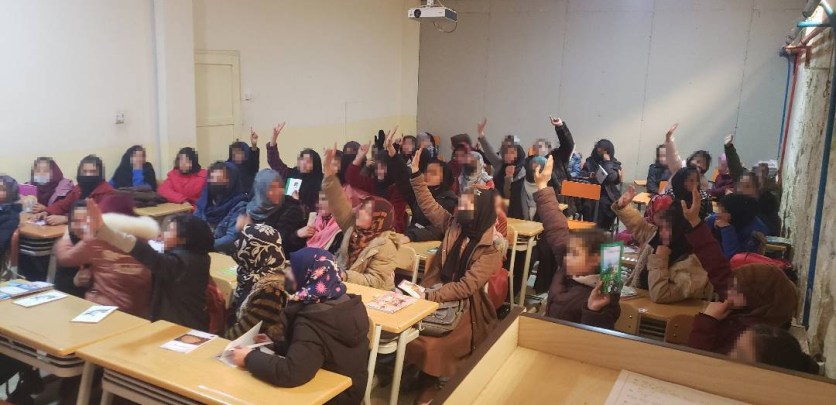
Educating Seventh to Eleventh Grade Girls in Afghanistan
Knowing the importance of educating girls and women in order to build a more peaceful world, you responded. Thanks to you and our community of peacemakers, 200 seventh to eleventh grade girls from impoverished homes are taking classes in English, math, physics, and values, five days a week at a private education center. Although the Taliban has closed secondary schools in the country, private education centers are allowed to offer subject specific courses, but they are expensive. With 95% of Afghans facing food insecurity, few families can afford to send their girls to education centers.
The education center with which we are working has several advantages for its students. This project started in December, a very cold month in Afghanistan. The education center has a central heating system, which is very unusual for the region. In a country with a shortage of teachers, the teachers at the center are highly educated and have an affectionate approach to the students. Best of all, our partners have a strong relationship with the local community, having gained the trust of the community’s elders. Best of all, some of the moms we employ through our traditional blanket project have daughters who study at the education center.
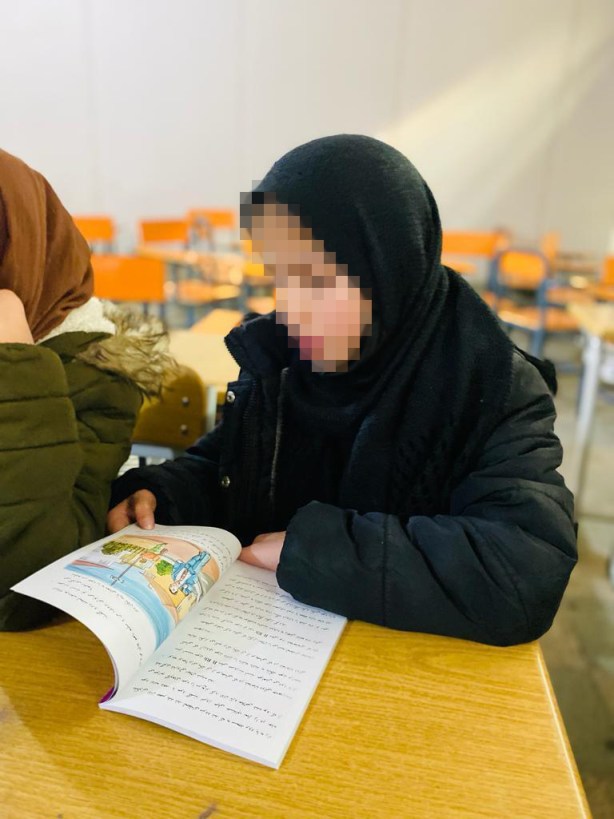
This project had just started when the Taliban barred women from attending universities. There was a heavy military presence on the streets to prevent protests, and people were advised to stay at home. The day after the university ban was announced, 65% of our 200 female students came to school, some wearing only sandals despite the cold and snow.
Leveling the Playing Field for Access to a Public University Education
In Afghanistan, public universities offer a better quality education than private universities, and they are free to attend. That is why getting accepted to a public Afghan university is very competitive. Over 300,000 students apply for only 55,000 places, and how well a student does on the kankur exam, a university placement exam, determines in which department the student can study.
The typical Afghan school year runs from March until December. Between December and the end of February, students sit for the kankur exam, province by province. If families can afford to, they invest in private kankur preparation courses for their children. Insufficient high school instruction and a lack of qualified science teachers means many young women are not prepared to take the kankur. Thanks to you, we are shoring up these gaps in learning for 50 young women from economically disadvantaged families by offering an eleven-month long kankur exam preparation course.
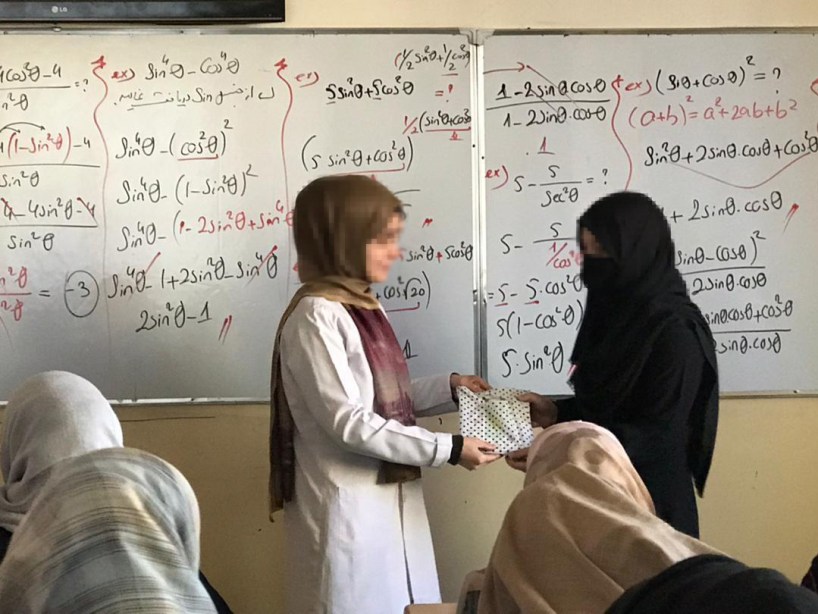
During the first eight months of this course, which started last April, 50 female students took lessons in math, chemistry, biology, and physics. The last three months of the course focus on test preparation. Sample kankur test questions are reviewed, students learn test taking techniques and problem solving under time constraints, and students take mock exams for practice. In addition, students study a peace education curriculum so they can become messengers of peace in their communities. We are hopeful the ban on women attending Afghan universities is temporary.
Thanks to you, we are working to reduce gender inequality in education for Afghan women. Supporting female education not only empowers women and reduces poverty, but it also helps build a more peaceful future. Join us as we continue to stand alongside Afghan women, supporting their human right to be educated.

